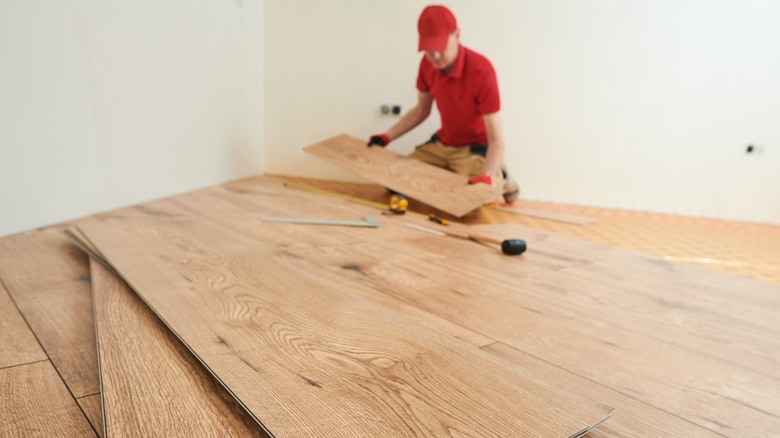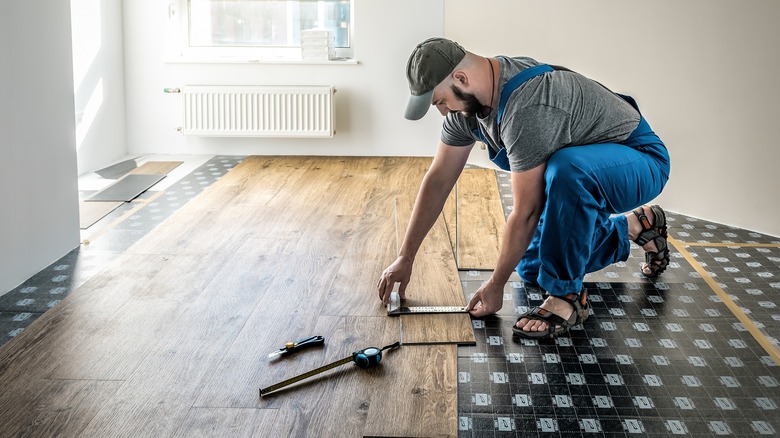The Downsides To Vinyl Plank Flooring You'll Wish You Knew Before Installing
If HGTV shows are to be believed, vinyl plank flooring is the future. It's often proposed as an inexpensive, durable, and handsome alternative to hardwood or tile flooring — especially since it mimics these looks at lower price points. But is it all it's cracked up to be? The truth is that vinyl plank can be a great flooring solution in many places. However, knowing its downsides is necessary before you buy. Despite being pitched as a durable and DIY-friendly product, vinyl plank flooring can be hard to install and while the material itself is waterproof, the seams are technically only water-resistant. That means that moisture can still be a threat, especially if the planks were installed incorrectly.
It's important to note that vinyl plank flooring comes in a variety of installation options, with some being more DIY-friendly than others. GlueDown planks adhere directly to the subfloor and may have factory-applied adhesive. Sometimes, however, you may need to apply an adhesive directly to your floor. GripStrip flooring has an adhesive that helps the product stick to the other planks to create a floating floor, which makes it ideal for installation over an existing floor. Then, click-lock flooring mimics tongue-and-groove hardwood flooring by snapping together. It can also be installed above another floor.
Flooring purchases are expensive and can impact how you feel about your space for years to come, so research is imperative. There are many pros and cons to consider when deciding if vinyl plank flooring is right for your space. So, let's explore what you need to know about the possible downsides of vinyl plank.
Do the drawbacks of vinyl plank outweigh the pros?
If you are thinking about DIY-ing your flooring project, it's crucial to understand that vinyl plank flooring can be difficult to install. In fact, it may require homeowners to hire a professional to install, and the added expense makes it less affordable, as the average cost is around $2,400 per room. There are also other considerations to keep in mind when you decide to install vinyl planks, such as the need to acclimate the flooring to your environment.
One of the biggest pros in the vinyl plank column is that it resists water damage. Because its top layer is essentially plastic, it can be a good choice for places like bathrooms or kitchens where spills are common. Don't get overconfident, though. Just because vinyl flooring can resist a splash from the kitchen sink or a spilled drink does not mean it will stand up to bigger challenges. If your dishwasher or toilet has a major flood, your vinyl floor will be compromised and could even trap mold.
Of course, few floors are floodproof, so this may not ultimately be a deciding factor. While wood floors might warp during floods, it's also possible to patch and refinish them, and they can last for many decades when well cared for. They might be more expensive up front, but when faced with an average 20-year lifespan for vinyl flooring, you may decide the extra money is worth it.

